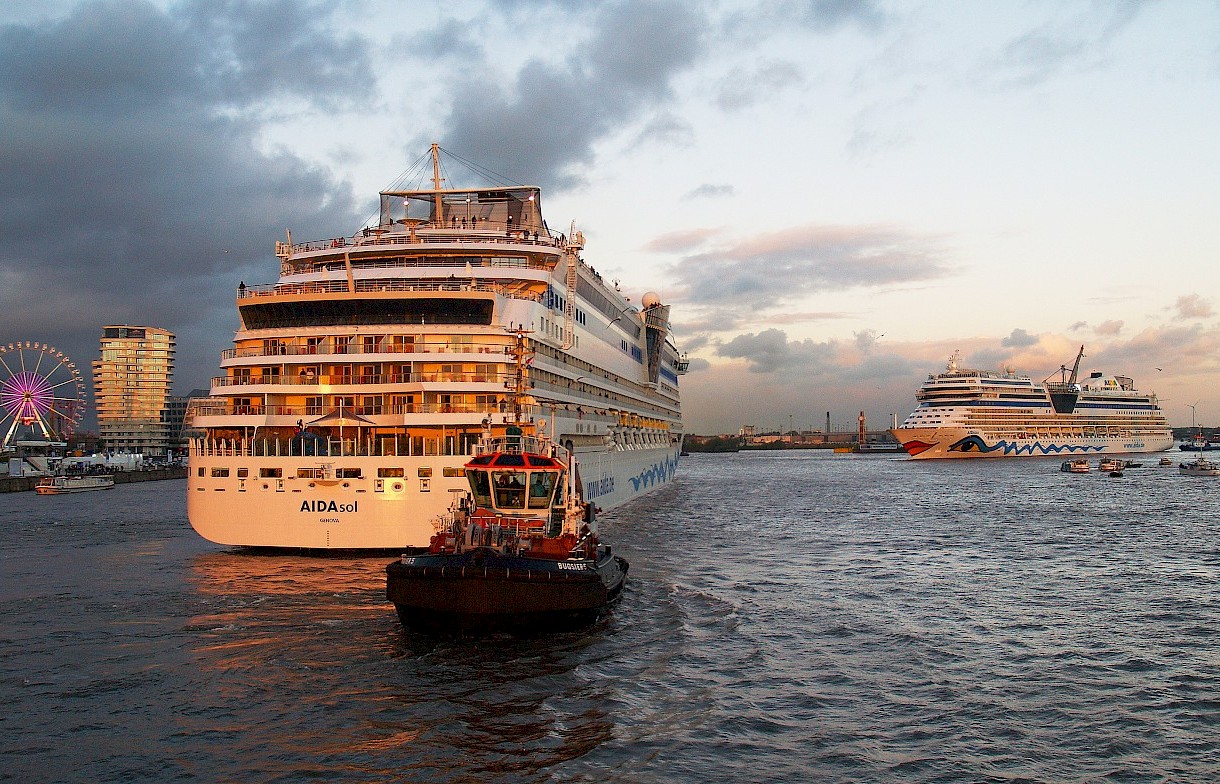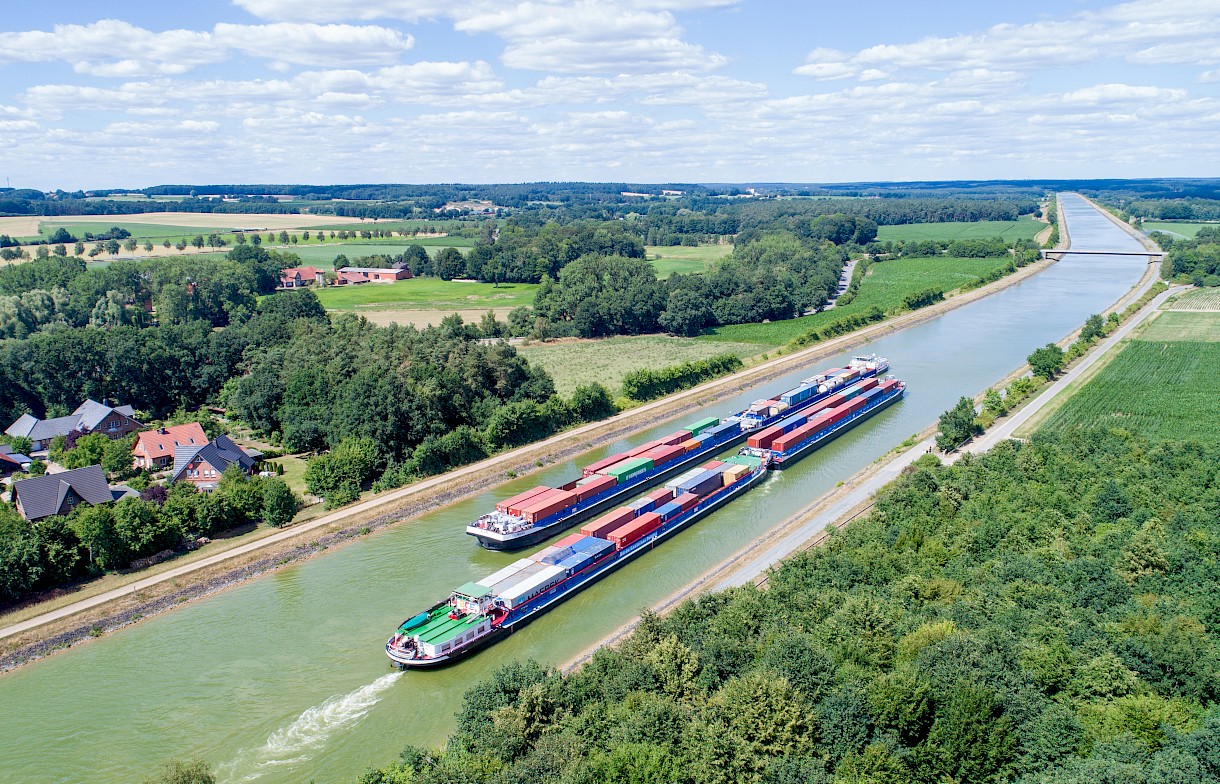Improves service for shipping company customers

The HVCC Hamburg Vessel Coordination Center and the Rotterdam Port Authority have entered into a cooperative relationship, the likes of which the world has never seen before: from now on, both ports will exchange relevant data through a digital interface so that shipping companies can steer their ships more efficiently and terminals can optimise their resource planning. This cooperation therefore improves the operational processes, while also making both ports more attractive.
The joint project was launched at the beginning of 2018 and, as of recently, the HVCC and the Rotterdam Port Authority exchange data directly via IT systems. The information pertains to planned and actual arrival and departure times for ships coming from or heading to either Hamburg or Rotterdam. This direct line of communication improves the basis for planning for both ports as well as for the shipping companies that use these ports, thus ensuring the ability to react quickly in the case of schedule changes. For instance, whenever shipping companies can allow their ships to travel slower – which may be due to, for example, dispatching issues at the arrival port – the ensuing bunker consumption is reduced, which in turn leads to cost savings and decreases the environmental impact.
Gerald Hirt, Managing Director of HVCC: “‘Airport Collaborative Decision Making’ is a concept that we know from aviation and refers to the joint decision-making and data usage established in that industry, from which shipping can also benefit. The direct exchange of data between Hamburg and Rotterdam is the logical first step towards building a network of ports all over Europe, particularly in order to increase the ability to react to delays – and thus provide both shipping companies and terminals with improved and reliable support for the arrival and dispatching of ships. We would like to invite other European ports to connect with us and to benefit from these advantages.”
This digital cooperation, which has now been established, is achieved through an interface, which links the HVCC software with the PRONTO platform used in Rotterdam. This allows for the real-time exchange of data along the lines of the Port Call Standard of the International Harbour Masters’ Association (IHMA). The interface significantly decreases reaction times, since changes are communicated immediately. This is particularly useful considering the ships’ relatively short travel time of approximately 24 hours between Hamburg and Rotterdam.
Without central management, communication takes place via emails, which makes it more timeconsuming: the information regarding delays at a terminal in the departure port is often first given to the shipping company or its local agents and is then transferred to the central planner of the shipping company, who then informs all upcoming arrival ports.
The following example illustrates a further advantage of cooperation: should a large ship with a capacity of 18,000 standard containers be informed directly before departure in Rotterdam that it can travel at only 14 knots instead of, as originally planned, 18 knots in order to reach the terminal on schedule, the bunker consumption would be reduced by approximately 22 tonnes. This is equivalent to a reduction in CO2 emissions by approximately 66 tonnes.
At present, the ports of Hamburg and Rotterdam are the direct points of departure or arrival for approximately 80 container ships per month, which will therefore benefit from the new cooperation. In addition, the data exchange should extend to other types of ships and terminals.
About the HVCC
The HVCC Hamburg Vessel Coordination Center is the central, neutral and industry-wide coordination point for mega-ship, feeder and inland vessel traffic in the Port of Hamburg. Terminals and shipping companies can make use of its operational coordination services for the arrival of ships in the Port of Hamburg, routes around the port and departure after handling – whether for container mega-ships, bulkers, cruise ships, feeders or inland vessels. A number of HVCC’s partners and customers are already connected to the Center’s overview, receive plans of passage for the dispatch to Hamburg and use it to optimise their planning processes. The HVCC is continuously developing the services portfolio of the “Networking” cross-departmental function and is also a partner in the EU project “Sea Traffic Management”. The HVCC is a joint venture between the two terminal operators Hamburger Hafen und Logistik AG (HHLA) and EUROGATE Container Terminal Hamburg GmbH. www.hvcc-hamburg.de
Press Contact
HHLA-Unternehmenskommunikation
Bei St. Annen 1
20457 Hamburg
Germany
Tel. +49 40 3088-3520
 19.02.2020
19.02.2020
HVCC, Wärtsilä and Carnival achieve real-time data exchange between ship and port
Reliable ship arrivals, more efficient ship handling and port logistics, as well as reduced fuel consumption and emissions – these are the aims of a joint digitalisation project between HVCC Hamburg Vessel Coordination Center, the maritime technology company Wärtsilä and the cruise group Carnival.
 08.05.2019
08.05.2019
HVCC optimises handling of inland waterway ships in the Port of Hamburg
The Port of Hamburg is not only the largest seaport in Germany – it is also the second-largest inland port. Around 10,000 inland waterway vessels call each year the handling facilities of the Elbe metropolis. The Hamburg Vessel Coordination Center (HVCC) is now developing a digital platform specifically for inland waterway vessels that will allow ship calls to be coordinated centrally in the future.
 02.10.2018
02.10.2018
HVCC and Kotug Smit Towage optimise conditions of entry at the Port of Hamburg
Hamburg Vessel Coordination Center (HVCC) and tug shipping company Kotug Smit Towage will in future work closely together at the Port of Hamburg in order to coordinate preliminary planning for ship calls and departures, and the associated tug services. This step will further optimise the efficiency and quality of ship handling in the Port of Hamburg.